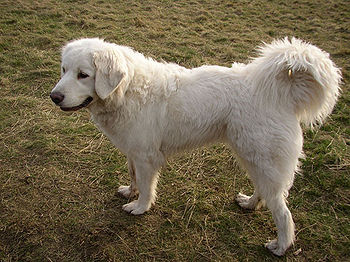
Dog Deafness
Veterinarian Reviewed on June 22, 2012 by Dr. Janice Huntingford
Dog Deafness (Deafness in Dogs)
Many dogs will become deaf over time as they grow older. The reasons as to why vary greatly; some dogs are born deaf whilst others lose their hearing with age. Your dog can continue to have a very normal and happy life, and will often go on to live to a ripe old age. You may have to adapt the way you treat the dog, and be more sensitive to its new needs. Your dog may struggle in the beginning but soon it will learn ways to communicate to you what it wants.
Signs and Symptoms
Hearing loss for your dog may stem from several reasons. Old age, head injuries, inner Dog Ear Infections and even blockages of the ear canal are all common causes. Sometimes your dog may grow deaf gradually as it ages. When this happens, both you and your dog will have time to get used to the hearing loss and adjust your lifestyles accordingly.
Causes of Deafness in Dogs
Congenital deafness is caused by development defects, although it is often present from birth. It does not become apparent until the puppies are old enough to begin responding to noises and voices. The deafness can be in one ear or both. If it is only in one ear you may never know that your dog is actually deaf. Certain dogs seem to be more prone to deafness. For example, dogs with white coats are at a higher risk for deafness. Dalmatian dogs are also very likely to become deaf.
Older dogs who gradually become deaf may still be able to hear very high pitched sounds, such as dog whistles. Dogs react to every day stimuli differently when they lose their hearing. Often, they seem to startle easily, and they fail to respond to commands.
Testing
Hearing tests can be carried out by your dog’s vet, and you will better understand how quickly your dog is going deaf and to what extent its hearing has already been lost. Your vet will also be able to explain in greater detail how you and your dog can adapt.
Learning to live with a deaf dog can be a challenge. When your dog is deaf, its other senses will become even more heightened and sensitive. Quite often deaf dogs will rely on vibrations, lights and smells to read their environment. You will need to be especially careful with your dog outside, because it may run into other animals it did not expect or have time to prepare for greeting. Inside your home, children will need to be not to sneak up on the dog, especially while it is sleeping.
Sign up for our newsletter and receive more articles and the latest pet health updates and special offers.
Our Expert
 Dr. Janice Huntingford
Dr. Janice HuntingfordJanice Huntingford, DVM, has been in veterinary practice for over 30 years and has founded two veterinary clinics since receiving her Doctor of Veterinary Medicine at the Ontario Veterinary College, University of Guelph. She has studied extensively in both conventional and holistic modalities. Ask Dr. Jan

